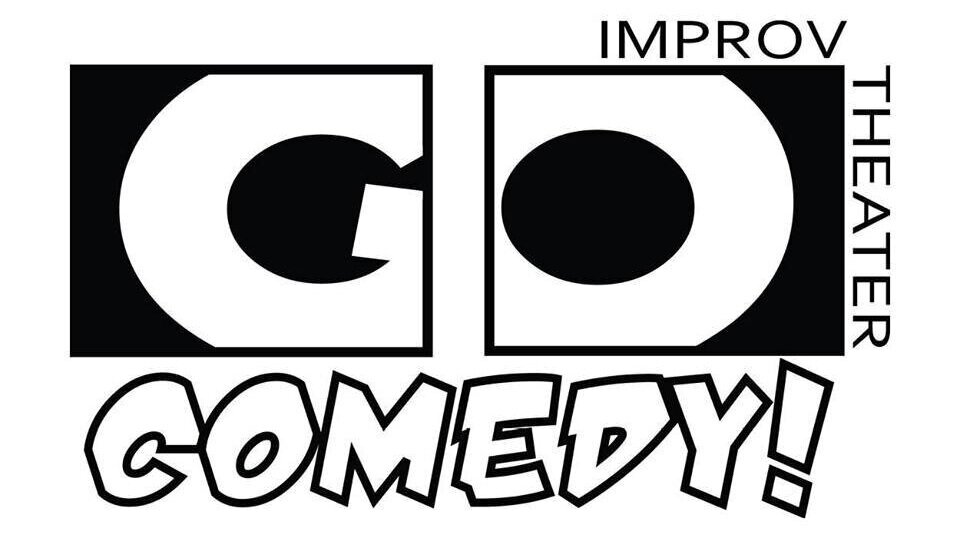European Improvisation
by Chris Fortin
In March 2017 Gary Lehman and I had the fortunate opportunity to travel to France to take part in the Subito Festival International de Théâtre d'Improvisation.
Before travelling to Brest for the festival, we visited Paris, where we took in some improv and were invited to drop in on a class. For a week we watched shows, took and taught workshops, performed in sets and jams, and just soaked in as much European improv as possible. Here’s some of what I took away from it.
Improv and Europe
When talking about the introduction of improv to Europe, two things were brought up over and over again: The Match and Keith Johnstone. The Match is an improvised game show, similar in format to a ComedySportz show or our own Showdown, except it lasts three hours because of strict guides to decorum. The whole show is hosted by an MC, who is NOT the referee, that’s someone else who also gets two assistants for impartial vote counting. Then there are two teams of three improvisors. Who also have coaches. Which brings the total to twelve people for one show. Did I mention the whole thing is done in a simulated hockey rink and the serious leagues wear hockey jerseys because the show actually originated in Canada? Oh, well I should have. If we explain improv to our friends, family, and coworkers by asking them if they know “Whose Line Is it Anyway?” the equivalent in any French speaking nation would be asking if they’ve seen The Match.
Keith Johnstone, author of “Impro,” is the European Del Close. Or Del Close is the American Keith Johnstone. I would suppose that they’re actually the same person but they’ve been seen in the same room having a grumpy-old-man-off. Keith Johnstone is also the creator of Theatersports (which means he’s also, unintentionally, the originator of ComedySportz). If you want to make sure you look like you know nothing about Improv in Europe (or Impro, as they call it), say you’re not familiar with Keith Johnstone and watch the disappointment creep into your new friends’ eyes. Whole improv communities can be traced back to someone getting a copy of his book, stumbling through it in English, and figuring it out from there.
Be grateful for stage time!
Out of everyone I talked to, across France, Italy, Germany, Morocco, and Finland, only one group came from a city with a dedicated improv theater (a theater called Improvidence in Lyon, France). Everyone else took classes in rented rehearsal spaces with more experienced improvisors, and they would get a class show once every couple of months. Some were in improv clubs that might do a set twice a month. Then everyone takes the summer off to recharge from the 20 shows (if they’re lucky) they got to do that year. If you’re hustling in Detroit you can do as many shows in a month as these guys get to do in a year. So don’t take it for granted!
Forms and Style
This relationship between classes and shows creates a group of improvisors that are well trained, but have limited stage experience. Most of the improv I saw on stage, in class, and at workshops was slower and more thoughtful, with rich characters. The actors let the scene and the characters drive, not the approval of an audience. Along with being very thoughtful and dramatic, French improv was more physical. With the rich history of clowning in France, it shouldn’t have been surprising how well people moved, and especially excelled at emoting without speaking.
The discussion of forms began and ended with short vs. long form. Short form is well circulated through The Match shows. Long form in Europe almost universally meant one storyline being followed from the beginning to the end. There was a general impression of the Harold, which was usually referred to more generically as “Chicago Style” improv.
The best part of the experience was the people. Improvisors, no matter where they’re from, have bright, enterprising spirits that seek out community and collaboration.
Improv is fantastic because of the amazing places you can go in a scene, experiencing whole lives you would never get to otherwise. It was just as amazing to have improv take me 4000 miles from home and still make me feel completely comfortable. To be welcomed into a group immediately, with no hesitation, because the group existed of purely welcoming people, was amazing. It was an incredible opportunity that I hope you get to experience. Submit to perform and teach at international festivals, they would love to have you! But for the love of god, don’t tell any Europeans you don’t know Keith Johnstone!
Bon voyage!
---
Chris Fortin is a homosexual.
(Please see below for proof that this was, in fact, his requested biography in its entirety...)



